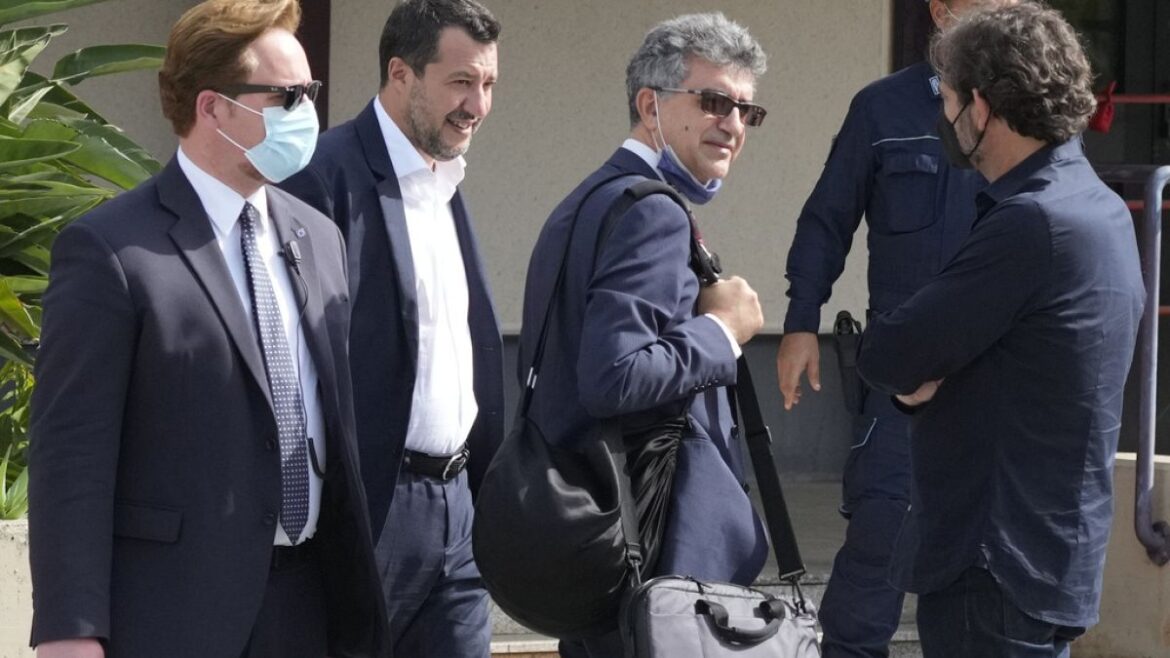Will the Palermo justice system sentence Italian Vice-President Matteo Salvini to six years in prison? The verdict is expected this Friday. In 2019, he prevented a migrant boat from disembarking in Lampedusa.
It’s judgment time for Matteo Salvini: after a long trial which lasted three years, the magistrates of Palermo, in Sicily, deliver their verdict this Friday against the former Italian Minister of the Interior in the Open case Arms. A risky verdict for the current deputy prime minister of Giorgia Meloni since he faces a sentence of six years of imprisonment.
The minister is accused of kidnapping while in office after preventing some 147 migrants rescued in the Mediterranean by the ship chartered by a Spanish NGO from disembarking on the island of Lampedusa in 2019.
The head of the League, a radical and anti-migrant party, has already made it clear that he would not resign if found guilty and promised to enter the courtroom with his “head held high”. For him, defending the borders is not a crime: “If I am convicted,” he said, “it would be a major defeat for Italy and Europe.”
In the European Parliament, the far-right Patriots for Europe group defended Matteo Salvini’s actions, while in Italy, League members say they are ready to take to the streets if their leader is convicted.
Simonetta Matone, a League lawmaker in the Italian parliament, expressed hope for an acquittal but said that if Salvini was found guilty, then her party would use all means provided by the rule of law to defend him. The MP added that “the political repercussions in the event of conviction will also be taken into consideration”.
The NGO Open Arms, at the origin of the standoff with the Italian minister, rejects, through its lawyer, Me Arturo Salerni, the assertions of the head of the League according to which he was defending the Italian borders, adding that as Minister of the Interior, Salvini also had a duty to protect human rights people on board rescue ships.
The founder and director of the NGO, Oscar Camps, will also be present this Friday when the judgment is announced. Open Arms claims that as a result of this affair, sea rescue operations suffered a significant setback. However, they reject claims by the minister and his supporters that the trial would be “politically motivated”.
Valentina Brinis, advocacy officer for Open Arms, told Euronews: “we sought the truth to understand what happened at the time, and we are very satisfied, thanks to the testimonies, and after all these years, a fundamental truth has emerged: saving lives is not a crime but a duty for us all.”
In the event of conviction, the minister will have the right to appeal, a process which could then take years before a final verdict is reached. The judges’ decision also addresses the question of whether border protection policies should take precedence over human rights, a hotly debated issue in Brussels. The decision will have significant implications for both Italy and Europe.



